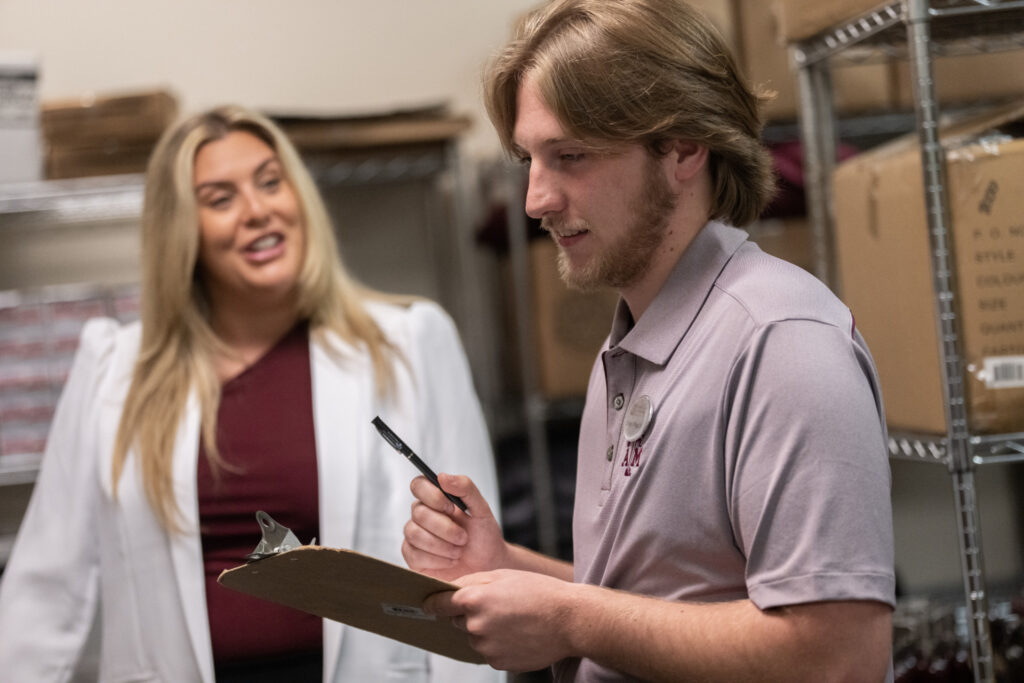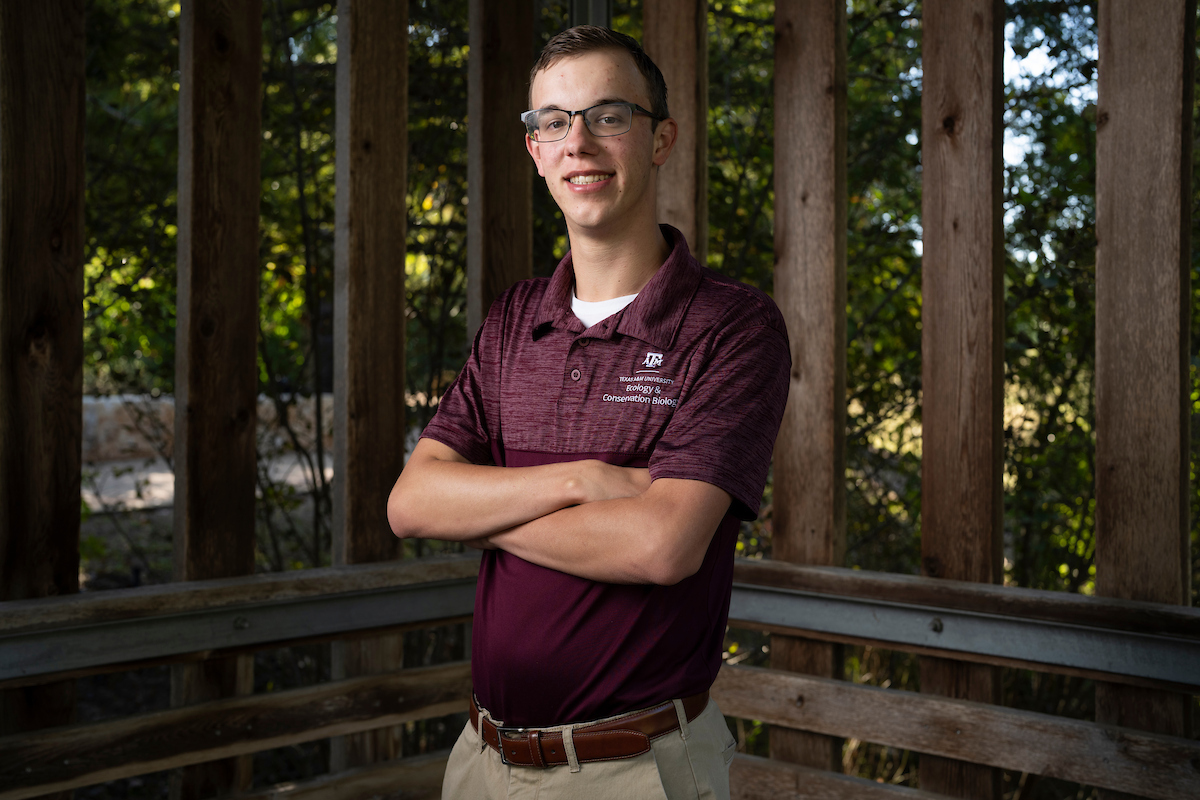Research that reaches everyone
Students from all disciplines gain opportunities with new Undergraduate Student Research Program
White coats, labs, microscopes, chemical reactions and science are typically associated with the word “research.” But research occurs in all 15 departments within the Texas A&M University College of Agriculture and Life Sciences. From economics, ethical leadership, livestock, communications and water quality, research permeates every aspect of agriculture and life sciences.
“Research isn’t confined to STEM-related fields,” said Craig Coates, Ph.D., associate dean for programmatic success for the College. “Regardless of your major, there are opportunities for undergraduate research.”
This all-encompassing approach to research is precisely what Coates advocates through the Undergraduate Student Research Program. The program is tailored to support students interested in conducting research across any discipline within the College.
Curiosity is key
To foster and honor excellence in research, Coates and key College leadership devised the Undergraduate Student Research Program to support up to 30 research scholars each year. Each successful scholar will be awarded a $1,000 scholarship, while faculty mentoring these students will receive up to $500 to cover expenses such as materials, travel and other related costs.

To qualify for the program, undergraduate students within the College must be either current sophomores or juniors with an expected graduation date between May 2025 and May 2026. Students must also register for a research course with their faculty mentor, complete the online Responsible Conduct of Research training and submit a research proposal approved by their research faculty mentor by April 30.
Selected scholars will engage in research alongside their faculty mentor during both the fall and spring semesters. They will then have the opportunity to present their research at a symposium in the spring.
“Embarking on a research program might seem daunting,” Coates said. “However, possessing curiosity is crucial for success, particularly in research. My advice for students is to explore the online profiles of faculty members within their department to discover areas of research that pique their interest. What sparks your curiosity? Your research journey can be ignited by a subject you’re passionate about.”
To learn more about the Undergraduate Student Research Program and to apply, visit the program’s website.





